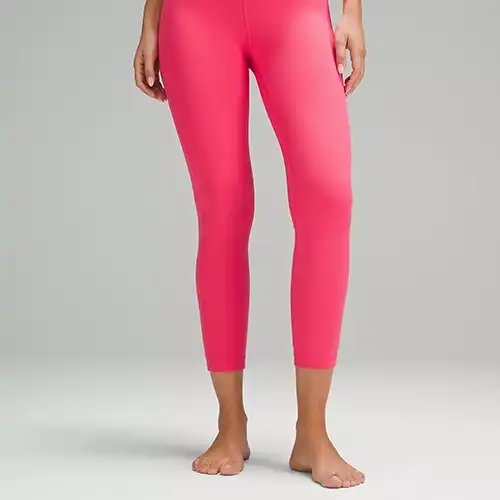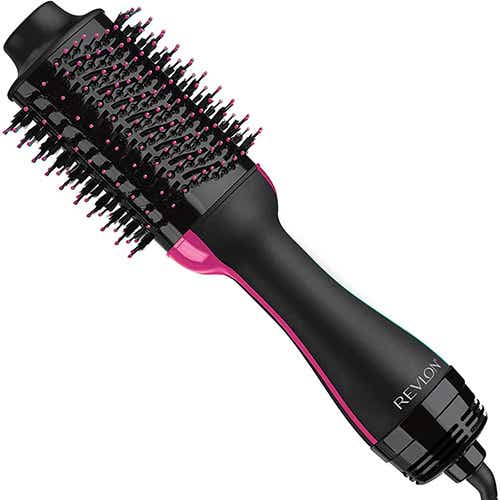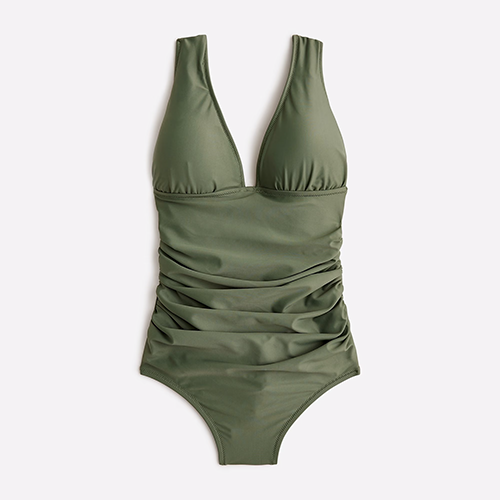Because sometimes, an off-the-shelf moisturizer just doesn’t cut it.
Anyone who’s lived through a cold winter understands that it can do some serious damage to your skin, complete with dry flakes, cracked heels and hands, and dull texture. Still, some people seem to have supple, smooth skin throughout the chilly months. We needed to know how they do it, so we decided to go straight to an expert.
Enter skincare guru Lilli Gordon, the founder of First Aid Beauty. She chatted with us about fighting dryness this winter, from your head to your toes. And yes, even those cracked, Grand Canyon-esque heels.
Katie Couric Media: For many people, winter is a time of bone-dry, sad-looking skin. First things first, can you explain why our skin dries out so much in the winter?
Lilli Gordon: That’s pretty simple — it’s because the humidity in the winter is low outdoors and indoors. So water evaporates off the outer layer of our skin, which causes our skin to become dry, flaky, and itchy.
What are some issues dry skin can cause?
The top layer of your skin is your skin barrier. Think of it as a roof — when you lose a few shingles, there are holes. What happens as a result of a compromised skin barrier is that bad things from the outside can get into your skin and the good things that you want to keep in your skin, like moisture, evaporate out. So it can lead to extreme discomfort and skin that’s very ashy and not very pleasant.
What are some easy steps we can take to try to prevent our skin from drying out during the winter?
When you’re inside, using a humidifier will really help, because our skin loses water due to low humidity. In the winter, you should really take quick showers with water that’s as cool as you can tolerate. Hot water and long showers may feel good but they’re going to wash away any oil that your skin generates and make your skin much, much more vulnerable.
Be careful in your choice of soaps: choose moisturizing ones and don’t use skincare products with alcohol, because alcohol can strip your skin of natural oils. Even be careful using a washcloth in the shower so that you’re not scrubbing too hard. Then of course, as soon as you’re done bathing and you’ve dried off, you should apply a moisturizer to seal in the moisture. Another trick: I can tolerate laundry detergents with fragrance in the summer, but in the winter, they make me very itchy because of the fragrance and the alcohol. So avoid those, too.
What are some common complaints you hear from people in need of dry-skin relief, and what sorts of products (moisturizers, serums, etc) do you recommend they try?
Well, they need moisture. They need to avoid all the things we talked about avoiding. And they need to hydrate, hydrate, hydrate. And there are different moisture choices to consider. It depends: Is it daytime, is it nighttime, is it for your face? Is it for your body?
Let’s say you have your normal moisturizer — and then winter comes along, you can use a heavier moisturizer. I really like our Ultra Repair Cream. It’s sort of like your wardrobe: You go heavier in the winter and then lighter in the summer. So I’d layer on a hydrating serum and then invest in a heavier moisturizer that you layer over top of that two or three times a week, right after you’ve washed your face.
You can use a hydrating mask regularly, and an overnight hydrating sleep mask if you’re traveling during the winter. As we all know by now, there is no humidity on an airplane. So get on the plane with clean skin or bring a cleansing wipe — then put on a really thick layer of moisturizer or a moisturizing mask that you can just tissue off after.
On your body, a really rich and thick cream is best to apply right after you shower and then again at night and in your vulnerable areas.
Asking for a…friend: What if your heels get very cracked and dry in the winter, and you don’t want to sleep with socks?
I’d probably give my feet a warm bath and then use a gentle buffer to remove the dead skin, then put some cream on. And then I’d put an even thicker product like a salve over top, then hop in bed. Ideally, you should always put moisturizer on your feet before bed. But I’ve learned that a lot of people don’t use a moisturizer on their bodies — just on their face.
As a skincare guru, how do you protect your skin during the winter?
Well, I’m very good to my skin and I get very ritualistic. Every morning, I use our Ultra Repair Cream everywhere from my neck down , including the bottoms of my feet. After that, I have a layering system for my face: I use a hydrating toner and serum, then our night cream, which is very hydrating. Then I use our tinted moisturizer, which delivers continuous moisture. And of course, I’m a big believer in protecting the long-term health of your skin by using sunscreen every single day, even in the winter.













